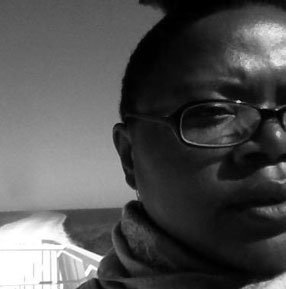Fish & Duck Skills
Sometimes it pays to go to Bojangles. To drive out of the parking lot, see the red awning: Fish & Duck Skills. A man walks out and it is broad daylight. Back when I was a new adult in Chattanooga I’d dare myself to go to the Adult Book Shop on Market Street in the daytime or to the gasoline station that my parents frequented, the one close to our old house, where pornography was stored in plastic. Back then I only dreamt in violence. & living was an act of deliberate volatility. Likely, I could trace it all back to Vaughn who laughed in my face when I told him I’d been molested that this was the reason having sex with boys was an act of self-hatred, how Vaughn shared not his story of sexual assault, but my story, with any Tyner Junior High teen willing to listen. So much was going on back then: the little race riots between us & Ooltewah, the White gay guy who thought he was Prince and was terrified of being found out that he wasn’t Prince & that he was gay, the boys who would store their guns in our lockers, my girl friends and I pretending we were gay, kissing each other in the hallway, on the lips, in front of the teachers, because designer clothes were expensive and scandal was free. I didn’t bother telling anyone that I was queer and that just about every single day I didn’t wish I was White, I just wished that White people weren’t. But I fished for the Whitest voice and duck tailed my hair knowing that one day no one would remember that I put a gun in my locker, that I kissed Deidre on her lips, that I sang “the freaks go out at night” at the top of my lungs & thrust my hips to “Candy” on my way to the pep rally. No, what people would remember was that I was Black. The end.
Copyright © 2018 by Metta Sáma. Originally published in Poem-a-Day on January 17, 2019, by the Academy of American Poets.
“I’ve been contemplating how movements that begin in communities of color, or with a single person of color, get co-opted by white people and how those movements take on a different, exclusionary energy when in the hands of their white co-opters—for example, think #MeToo versus Tarana Burke’s Me Too movement. I don’t participate in the former, but I also recognize that it’s ‘safer’ for me to divulge and unpack my stories of sexual violation because of #MeToo. This particular poem, part of a small series, hones in on how trauma tales travel and how, when the person assaulted is a black girl, the assault is overlooked, ignored, erased, and often amplified to fit nicely into the stereotype of the oversexed black woman who is robust enough to simply get over it.”
—Metta Sáma

